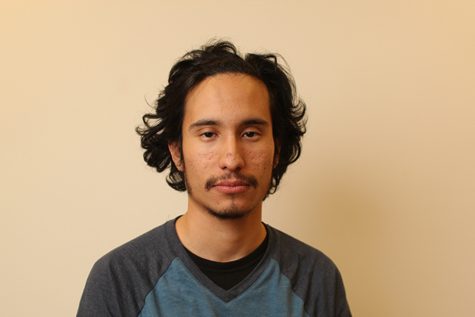Department broadens with emotional intelligence
Health and human services course identifies steps toward self-confidence, peace
Apr 21, 2015
Come fall 2015 students majoring in health and human services will be able to take a course in which understanding and dealing with one’s emotions is the focus.
Health and human services department Chairperson Julie Shieh-Cook will teach the course, which is under the current title of Health and Human Services 100L, Emotional Intelligence.
The subject matter to be discussed is centered on identifying emotional competencies such as emotional awareness or optimism, and using a seven-step process to help students guide themselves toward self-confidence and peace.
The idea for the class arose from Shieh-Cook’s sabbatical during the fall 2014 semester.
“Students don’t go to counseling until it’s a crisis, so if they were given tools that could help them actively seek a solution and solve the problem, it would help prevent that level of desperation,” Shieh-Cook said.
Applying for a sabbatical is a competitive process and part of the process is seeing what she could do to constitute the sabbatical and whether she was doing enough to warrant one, but nonetheless Shieh-Cook wanted to hold a community education class to test out the emotional intelligence concept, she said.
Shieh-Cook taught a community education class as a part of the sabbatical and emotional intelligence was a part of that workshop.
“HHS-100L came out of the research I did and I reached out to different universities, a lot of whom offer some type of this course,” she said.
Shieh-Cook said that during her research she read 38 different academic studies and discovered significant positive correlation between emotional intelligence, a professional career and academic success.
“I completed this (school of thought) into one process from the scholarly articles that I used and it is a seven-step process you go through that applies to emotionally-driven problems,” she said.
The seven-step process breaks down the emotional approach to problem solving through inner guidance and counsel.
“Emotions have a purpose. There’s something to bring them out, and students drop out for one reason or another, so there’s nothing more valuable than learning to be your own best friend and counselor in times of stress,” Shieh-Cook said.
First, students would center themselves and look within to identify the problem.
Then, the individual is responsible for claiming the problem, owning whatever is causing negativity by describing what happened that initiated it, and figuring out what he or she needs to do to change it.
Resolving the problem, reaching out to others and receiving help occurs next when the individual realizes what needs to be done and uses self-compassion to do so.
The remaining steps concern the individuals themselves with recognizing patterns and showing people that emotional reactions are patterns — ones that may not need to be applied at the moment and could be recognized as problem indicators.
One way to emotionally problem-solve is to re–pattern. That is, to replace that old pattern with a new pattern and recognizing what triggers these thoughts, feelings and ultimately actions.
“By transforming the pattern and getting rid of the emotion or emotions that were bothering us, we then decide on how it won’t happen again and we center again in this step,” Shieh-Cook said.
Health and human services major Michael Harris said HHS students can use emotional intelligence to deal with clients experiencing negative emotions routinely and be able to problem-solve more efficiently, as well as having a handle on one’s own emotions.
“You never know what kind of problems clients may have in this capacity (therapy), so you have to be in control, and I would think emotional intelligence would matter a lot for that,” Harris said.
Health and human services co-chairperson Aminta Mickles said she will definitely support the class and that she expects awareness to spread through word of mouth.
“Students come in and talk about it and begin to tell others. HHS wants to create experiences that last and that apply to their lives today and in the future,” Mickles said.


